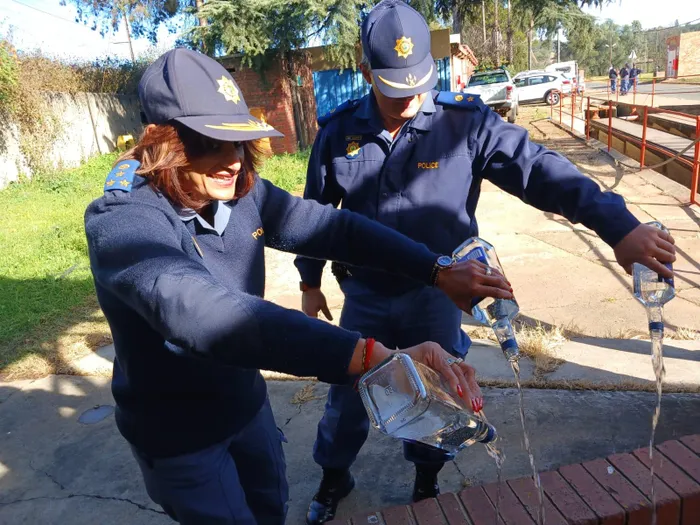Booze blues or backyard brews? SA’s alcohol sales leave us guessing

Police in the Tshwane District disposed of a total of 6,431,959 milliliters of confiscated alcohol.
Image: SAPS
If the latest Statistics South Africa’s figures on food and beverage sales are taken at face value, South Africans are either drinking more at home, drinking less, or drinking hooch.
Sales of illegal alcohol – such as bottles smuggled into the country – are on the increase and now account for 20% of all booze drunk in South Africa – a problem that intensified when the Covid-19 shuttered sales of both alcohol and smokes.
Statistics South Africa’s data for the month of April shows that bar sales – income from alcohol sales – are on a downward trajectory, although the value of sales in the fourth month of the year did not decline as much as in February, when income from bar sales dropped 7.9%.
At the same time, the cost of a drink is increasing.
Statistics South Africa’s May inflation figures showed that alcoholic beverages and tobacco increased 4.3% year-over-year. Put another way, if your weekend party stash of drink cost R1 000 last May, it went up by R43. That, based on advertisements from liquor stores, is worth almost half the cost of a six pack of beer.
The decline in bar sales, and increase in the cost of booze, coincides with a Drinks Federation of South Africa report indicating that nearly one in five alcoholic drinks sold in South Africa is illegal.
According to Euromonitor’s 2018 Global Study on Illicit Alcohol, one in four alcohol bottles are illicit, representing 25.8% of all global consumption.
In fact, Illicit trade in tobacco and alcohol alone is estimated to cost government R30 billion a year in lost revenue. This is according to the South Africa Illicit Economy 2.0 Report, launched by the Transnational Alliance to Combat Illicit Trade in conjunction with Business Unity South Africa.
The same report noted that the illicit alcohol trade remains a critical challenge in South Africa, with implications for public health, tax revenue leakages, and law enforcement – stealing about R11bn a year in tax on its own. This is, it said, “the highest fiscal loss from illicit alcohol among seven African countries studied by Euromonitor”.
Overall, based on 2019 prices, the total income generated by the food and beverages industry increased 4.7% in April 2025 compared with a year ago, with a 5.8% annual growth rate recorded for food sales, Statistics South Africa noted. The food and beverage sales publication surveys bars, take away outlets, coffee shops, restaurants, and bars.
IOL